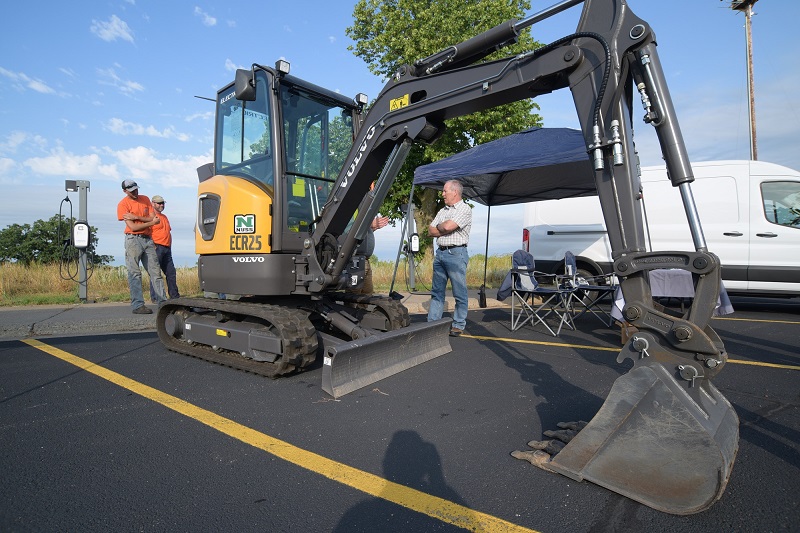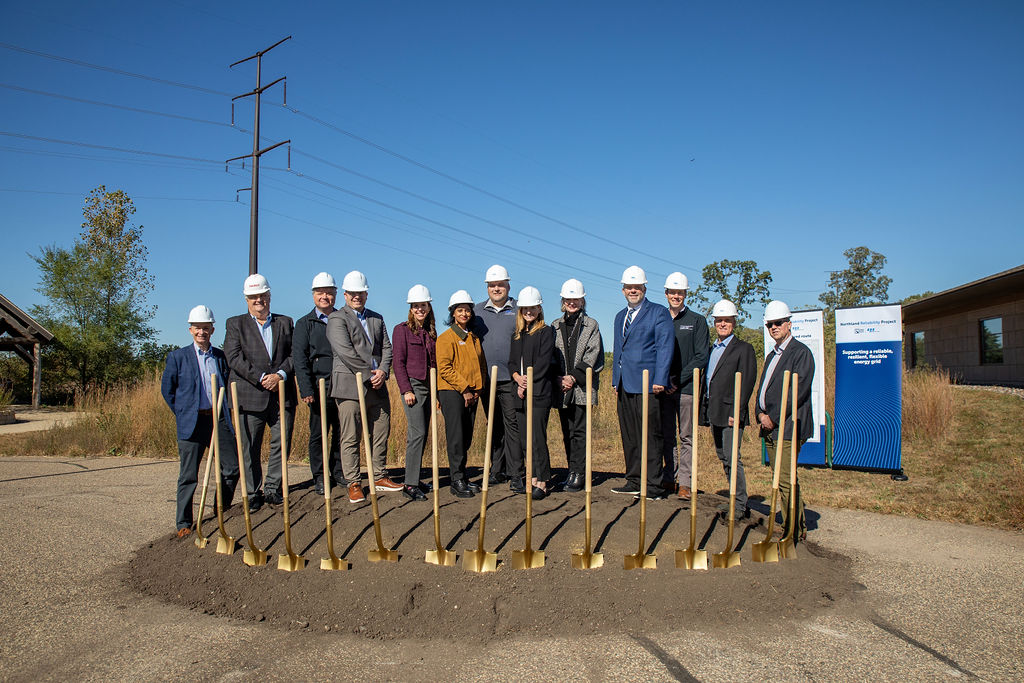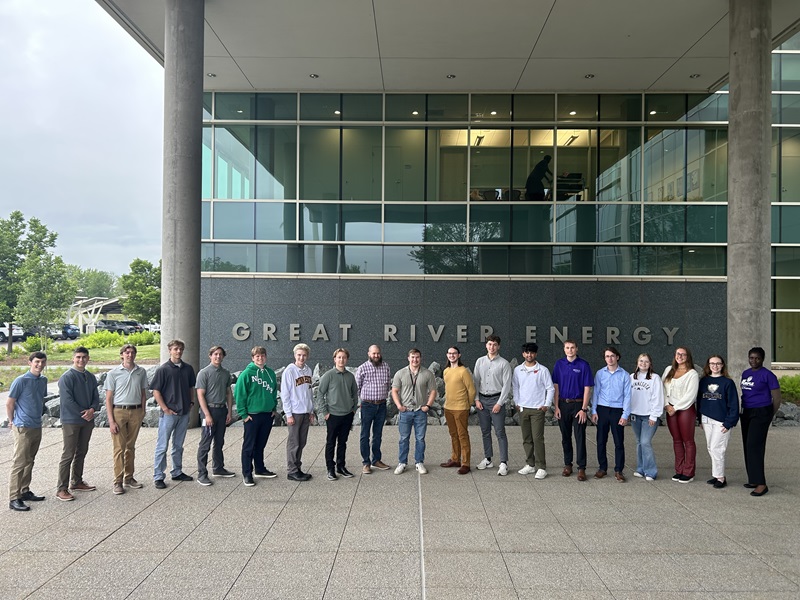Great River Energy recently hosted an event that featured the state’s largest collection of electric utility fleet-specific vehicles to showcase how the technology is being applied to transportation options within the utility industry.
Vehicles ranging from a cargo van to a mini excavator and even a hybrid bucket truck— all powered by electricity — were on display, with some available for test drives. Dozens of employees from Great River Energy’s member-owner cooperatives attended the event, including fleet managers and field supervisors.
“We’re an electric utility but Great River Energy and our member-owners know we play a major role in the evolution of transportation,” said Rodney De Fouw, member electrification strategist at Great River Energy. “This is why we are focused on being not only ready, but a leader in this transition.”
The event coincided with a Bloomberg study that found the United States has passed a critical electric vehicle (EV) tipping point: 5% of new cars sold are powered only by electricity, signaling the start of what 18 other countries experienced at the start of mass EV adoption.

As part of this leadership effort, Great River Energy and its member-owners are planning to electrify their own fleets to both reap the benefits of making the switch but also better understand and share the nuances.
By swapping out gas-powered vehicles for electric options such as Ford’s F-150 Lightning and E-Transit cargo van, businesses can lower operating costs, reduce maintenance and also support their sustainability goals. As more renewable sources of energy are added to the electric grid, the electricity used to charge EVs becomes cleaner. A company working toward electrifying its fleet vehicles can reduce its emissions and overall carbon footprint.
Beyond choosing which models of EVs to purchase, event attendees were also informed about other factors that come into play when converting fleets.
A representative from Atom Power spoke about the company’s advanced EV charging infrastructure system suited to fleets. Employees from Willdan discussed their analysis, planning and implementation process for helping businesses through the transition. Odyne Systems also presented on its unique electrification and hybrid systems for medium- to heavy-duty trucks, including its bucket truck that was on display.
De Fouw noted the acceleration in EV adoption and, with it, the added load to the electric grid from vehicles charging, presents a challenge for electric cooperatives. But through collaboration, as well as sharing knowledge and experiences, he believes they will find the best solutions to that challenge.
“This is our fuel, our future — and we’ll be leading the way,” he said.

 " data-object-fit="cover">
" data-object-fit="cover">
 " data-object-fit="cover">
" data-object-fit="cover">